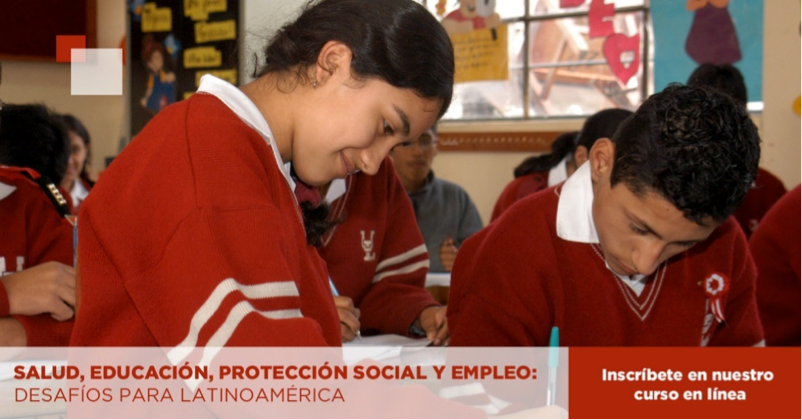The Inter-American Development Bank is offering a Massive Open Online Course (MOOC) on social policy in Latin America and the Caribbean, including poverty and inequality, early childhood development, education, health, social protection and employment.
Entitled Latin American Social Reality, the free, seven-week, introductory course is intended to give journalists, policymakers and other non-specialists a deeper understanding of key social issues. It looks at the policies that have succeeded in advancing social welfare. And it tackles the challenges that the region, as well as individual countries, continue to face.
Extreme and moderate poverty have declined substantially in the region over the last 20 years, and inequality has fallen more recently. But how are poverty and inequality related and how are both connected to economic growth and programs to increase the income of the poor? What role have other interventions, both economic and social, played? And what are some of the major gaps in social policy that still need to be filled?
One module of the course seeks to address some of these questions by delving into early childhood development, including health and nutrition, as well as language and cognitive acquisition. It examines what works and what hasn’t in parenting, daycare, and pre-school programs and tries to tease out why gains have been uneven across socioeconomic sectors.
Another module examines why despite impressive gains in coverage at both the primary and secondary level, the quality of schooling in the region remains considerably below that of OECD countries. It also looks at those interventions that might boost educational quality and labor-market relevance while enhancing productivity and growth.
Still another module explores employment, including a discussion of the factors that stimulate and limit labor markets. Key issues are the problems of widespread labor informality and the tepid growth in productivity, which with the exception of the Middle East, is the lowest among the world’s regions. Potential solutions are an important part of the discussion.
And that is not to mention modules that deal with issues of health, conditional transfers, political economy and other topics, presenting both the current state of the region and the principal effective policies.
Prepared by some of the IDB’s top specialists, the course addresses these issues, bolstered by IDB studies and that of some of the world’s leading universities and research institutes. Economic and social analyses in the academic sphere can be intimidating, full of complex mathematics and obscure jargon. The MOOC on social policy is the opposite: easy to follow, fast-paced and enlivened by case studies and videos for difficult-to-grasp concepts.
Offered in Spanish through Edx, the online learning program founded by Harvard and MIT in 2012, the course on Latin American Social Reality begins Sept. 14, 2017 and requires approximately 6 hours per week of participation. Participants may pay $25 for an instructor-signed certificate if they wish.
Register here.


Leave a Reply